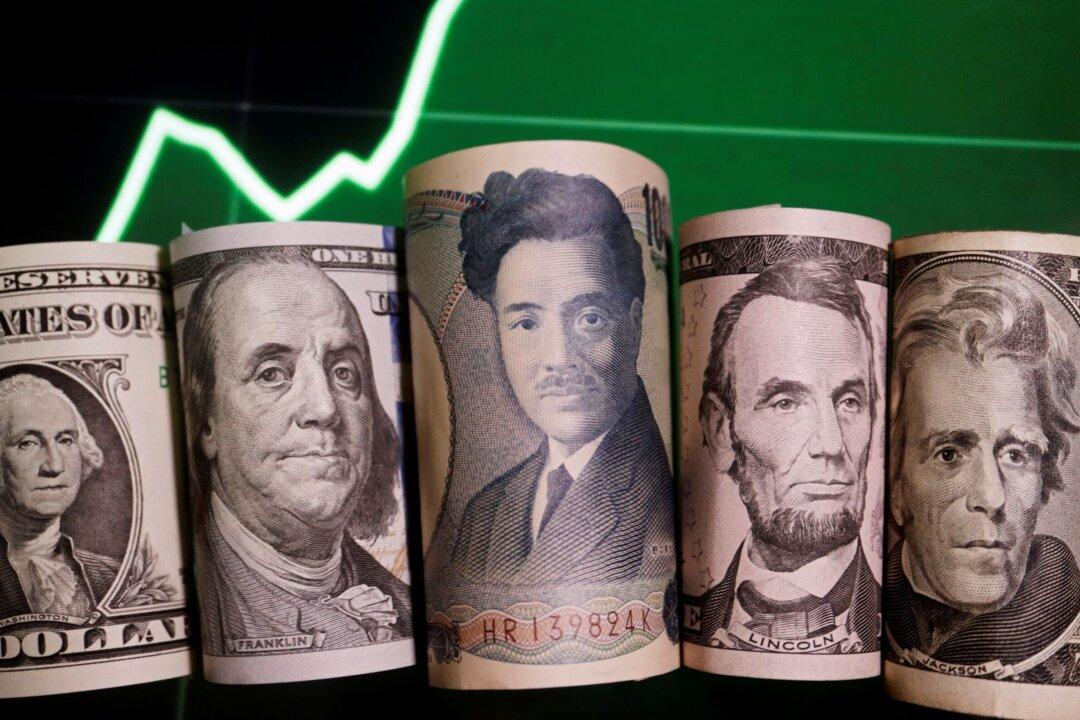LONDON—The U.S. dollar strengthened on Thursday after the Federal Reserve left interest rates unchanged but signalled further rate hikes to come this year as attention turned to the European Central Bank policy announcement later in the day.
The Fed’s policy decision snapped a string of 10 consecutive rate hikes, but the projections, or dot plot, showed policymakers expect two more increases by the end of 2023. Chair Jerome Powell said rate cuts in 2023 would not be appropriate.





